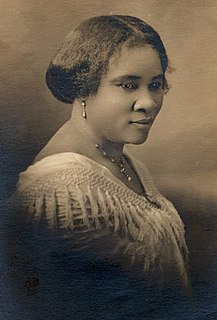A Quote by Desmond Tutu
When we see others as the enemy, we risk becoming what we hate. When we oppress others, we end up oppressing ourselves. All of our humanity is dependent upon recognizing the humanity in others.
Related Quotes
The remarkable thing is that we really love our neighbor as ourselves: we do unto others as we do unto ourselves. We hate others when we hate ourselves. We are tolerant toward others when we tolerate ourselves. We forgive others when we forgive ourselves. We are prone to sacrifice others when we are ready to sacrifice ourselves.
You should desire for others what you desire for yourself, and hate for others what you hate for yourself. Do not oppress, just as you do not like to be oppressed. Do good to others just as you would like good to be done to you. Dislike in yourself what you dislike in others. Accept that treatment from others which you would like others to accept from you. Do not say to others what you do not like to be said to you.
Right from the moment of our birth, we are under the care and kindness of our parents, and then later on in our life when we are oppressed by sickness and become old, we are again dependent on the kindness of others. Since at the beginning and end of our lives we are so dependent on other's kindness, how can it be in the middle that we would neglect kindness towards others?
If we don't love ourselves, we would not love others. When someone tell you to love others first, and to love others more than ourselves; it is impossible. If you can't love yourselves, you can't love anybody else. Therefore we must gather up our great power so that we know in what ways we are good, what special abilities we have, what wisdom, what kind of talent we have, and how big our love is. When we can recognize our virtues, we can learn how to love others.
A Winner's Blueprint for Achievement BELIEVE while others are doubting. PLAN while others are playing. STUDY while others are sleeping. DECIDE while others are delaying. PREPARE while others are daydreaming. BEGIN while others are procrastinating. WORK while others are wishing. SAVE while others are wasting. LISTEN while others are talking. SMILE while others are frowning. COMMEND while others are criticizing. PERSIST while others are quitting.
The misfortune of others is our misfortune. Our happiness is the happiness of others. To see ourselves in others and feel an inner oneness and sense of unity with them represents a fundamental revolution in the way we view and live our lives. Therefore, discriminating against another person is the same as discriminating against oneself. When we hurt another, we are hurting ourselves. And when we respect others, we respect and elevate our own lives as well.
To see ourselves as others see us can be eye-opening. To see others as sharing a nature with ourselves is the merest decency. But it is from the far more difficult achievement of seeing ourselves amongst others, as a local example of the forms human life has locally taken, a case among cases, a world among worlds, that the largeness of mind, without which objectivity is self-congratulation and tolerance a sham, comes.






































